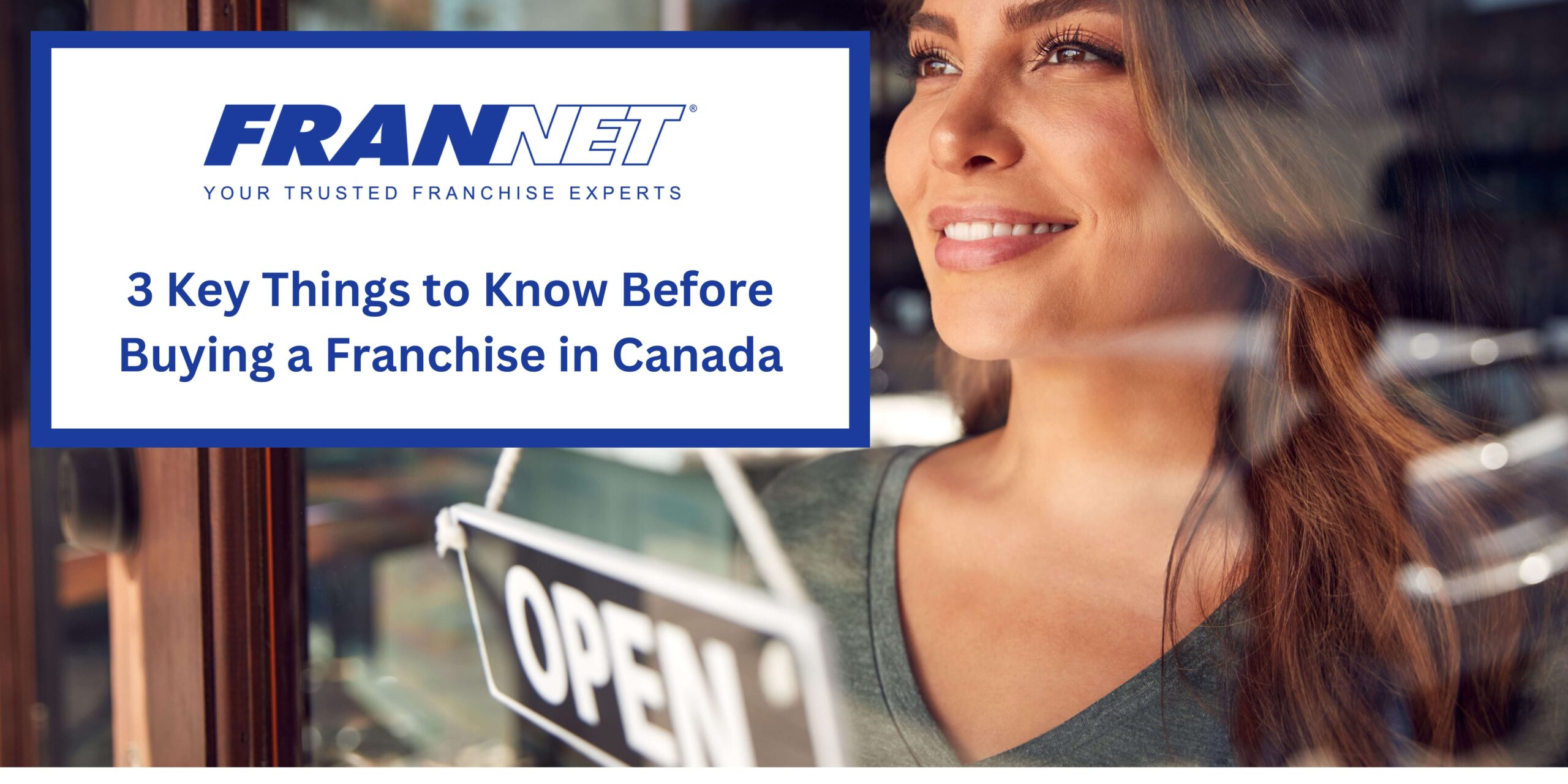
{Updated January 2024}
Franchising has proven to be a resilient industry in Canada. According to Franchise Canada Online, it is currently the 12th largest industry in the country with the income from franchising representing $120 billion. Furthermore, franchising provides employment to 1 in 10 Canadians, and each day the average Canadian interacts with three to five franchise locations (coffee, daycare, swim lessons, etc.).
Are you hoping to join this thriving industry and become a franchise owner in Canada? If so, it’s important to be familiar with the process of buying a franchise in Canada – from the laws and regulations around franchising to the steps involved in the process.
3 Things to Know When Buying a Franchise in Canada
#1 – Canadian Franchise Laws & Regulations
In Canada, there isn’t a federal equivalent to the U.S. Federal Trade Commission’s Franchise Rule, which requires franchisors to provide a disclosure document to potential franchisees.
Rather than a federal rule, franchising is regulated at the provincial level. Six provinces (British Columbia, Alberta, Manitoba, Ontario, New Brunswick, and Prince Edward Island) have franchise legislation in place, which adopts the following four principles:
- The disclosure obligation – a franchisor must provide the prospective franchisee with a franchise disclosure document (FDD) at least 14 days before signing any agreement or receiving any payment.
- The duty of fair dealing – a duty of fair dealing in the performance and enforcement of the franchise agreement is imposed in accordance with reasonable commercial standards.
- The right of association – franchisees have the right to associate with other franchisees and to form or join an organization of franchisees without penalty or interference from the franchisor.
- Rights cannot be waived – rights given to a franchisee and obligations imposed on a franchisor cannot be waived.
Additionally, while Québec doesn’t have any franchise-specific legislation, it operates under the Civil Code of Québec and the Charter of the French Language.
#2 – Your Path to Franchise Ownership
When it comes to business ownership there are a few options to pursue. You can start a business from scratch, buy an existing one, or choose to go the franchising route. With franchising, you’ll pay an initial franchise fee in exchange for the rights to use the franchisor’s trademarks, branding, and business model. The exact costs of starting a franchise in Canada will vary depending on the industry. All franchises operate on the premise of following a proven business model designed to help franchisees become successful owners, making it a great opportunity for aspiring business owners.
Further reading: How to Finance a Franchise Purchase in Canada
#3 – The Final Stages
Before signing the franchise agreement, you should do your due diligence to research and understand the franchise you’re planning to join. A key step in this process is to review the franchise disclosure document (FDD). This document provides all the details you’ll need to know about becoming a franchisee in the franchisor’s system. Beyond this document, you can also attend “Discovery Day”, which allows you to spend one-on-one time with representatives of the franchise brand. Not only does this give the franchisor a chance to assess your candidacy, but it gives you the opportunity to see how the business works in-person and ask questions.
Interested in Buying a Franchise in Canada?
Ultimately, when searching for a franchise brand to join, it’s important to keep an open mind. What you want isn’t what sounds cool, catchy, or trendy. Rather, you want to find a business model that aligns with your specific goals and lifestyle. A FranNet franchise consultant can be a huge help in this process. We will navigate each step with you and provide you with the resources you need to make an informed-decision – all at no cost to you. Schedule your free consultation to get started today!
